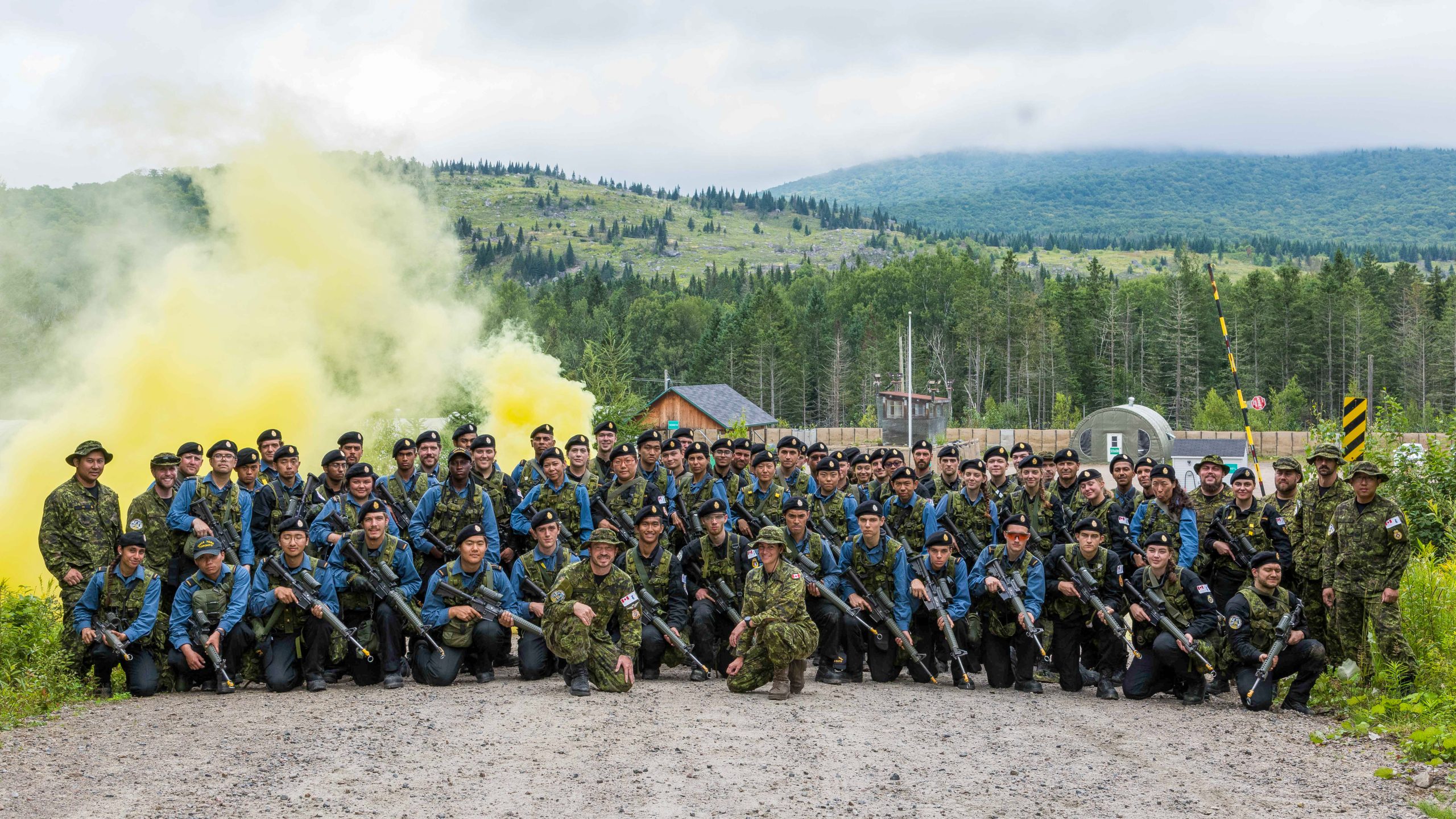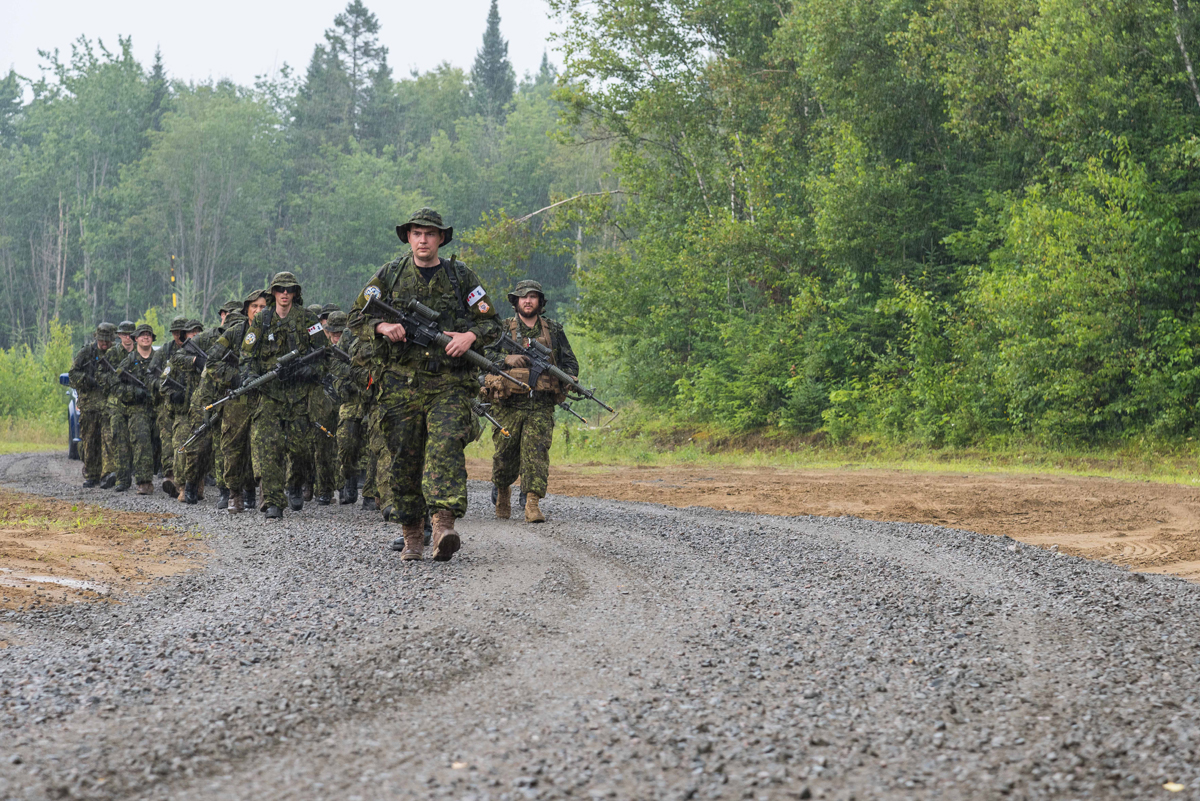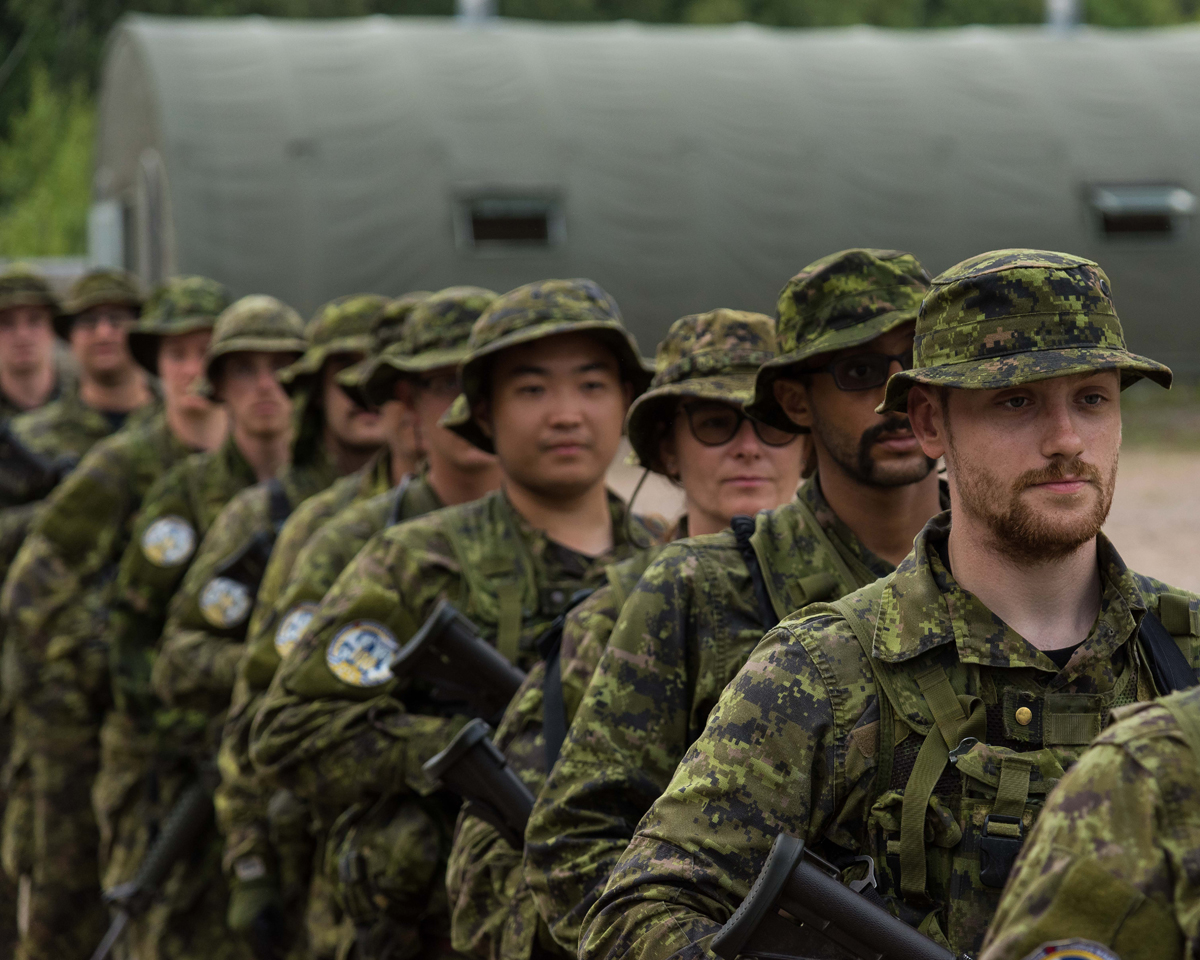Time and tide wait for no one
By Lookout Production on Sep 07, 2023 with Comments 0

BMQ students take a group photo in front of the Naval FOB in CFB Valcartier, Coucelette, QC on August 17, 2023. Photo by MCpl Nathan Moulton
Michael McWhinnie
NTG HQ
—
‘Time and tide wait for no one’ is an age-old adage that encourages us to seize opportunities when they arise while reminding us that, despite human aspiration, things are beyond our control. The motto is particularly relevant to the summer programme at Naval Fleet School Quebec (NFS(Q)).
All navies are comprised of warships, but those familiar with creating and sustaining sea power know that people are the lifeblood of any effective maritime force. But time continually advances and erodes the Royal Canadian Navy’s (RCN) personnel numbers and expertise. Every day, sailors retire or leave the service for various reasons. We call it ‘attrition’; left unchecked, the Canadian Armed Forces (CAF) would eventually cease to exist. The sole remedy is continual recruitment and training to offset those losses.
The Naval Reserves mark their 100th year of service to Canada this year. From humble beginnings, these ‘citizen sailors’ contributed significantly to Allied victory during the Second World War. They answered the call to serve in droves. At the outbreak of the war, reservists more than doubled the size of the RCN to 15,000 personnel. At the height of the Navy’s wartime establishment, reservists constituted three-quarters of the RCN’s sailors and officers (77,000 of 95,000). Today, approximately 4,100 reservists serve onboard HMC ships at naval bases in Halifax, Quebec City, and Esquimalt, or within 24 Naval Reserve Divisions in urban centres across Canada. They continue to recruit new members from across the country who typically receive their Basic Military Qualification training from staff at NFS(Q).
For the Naval Reserves, summer is the season for Basic Training. Since most recruits are either employed or in school during most of the calendar year, the summer months from May through August are the opportune time to schedule training based on availability.
Each year since 2013, a significant portion of NFS(Q) staff relocated from their offices adjacent to the harbour in Quebec City (HMCS Montcalm) 30km to Camp Vimy, part of the Canadian Army’s training facility at CFB Valcartier. Since 2017, the Reserves have employed a modular approach to basic training. Candidates begin with MOD1, where they acquire a basic understanding of the Profession of Arms in Canada, including military ethics and values through distance learning. They progress through MOD2, administered by their home unit. Topics include First Aid, Security Policies, Drill and Ceremonial. Finally, candidates assemble in Quebec to conduct MOD3 – 18 training days of practical exercises designed to challenge candidates physically and mentally. Lessons are operationally-focused and include infantry section manoeuvres, Chemical, Biological, Radiological and Nuclear Defence, small arms proficiency, and ammunition safety, all strongly emphasizing physical conditioning, including the 8km forced march. The Basic Military Qualification course for officers and Non-Commissioned Members (NCMs) concludes with a graduation ceremony at Support Base Valcartier.
This year, the training establishment graduated 268 NCMs and 51 officers. A typical year sees 300 to 500 personnel achieve the qualification.
A healthy and sustainable naval force is the product of vibrant and professional recruiting and training efforts. The work by staff at NFS(Q) is helping ensure the next generation of RCN sailors and officers is available to offset the effects of attrition. A crucial wellspring of maritime force generation for Naval Reserves from coast to coast is a short drive from Quebec City – at a Canadian Army training site!

BMOQ candidates conduct field exercises in the training sector at CFB Valcartier, Courcelette, QC on July 28, 2023. Photo by MCpl Nathan Moulton

BMOQ candidates conduct field exercises in the training sector at CFB Valcartier, Courcelette, QC on July 28, 2023. Photo by MCpl Nathan Moulton
Filed Under: Top Stories
About the Author:





